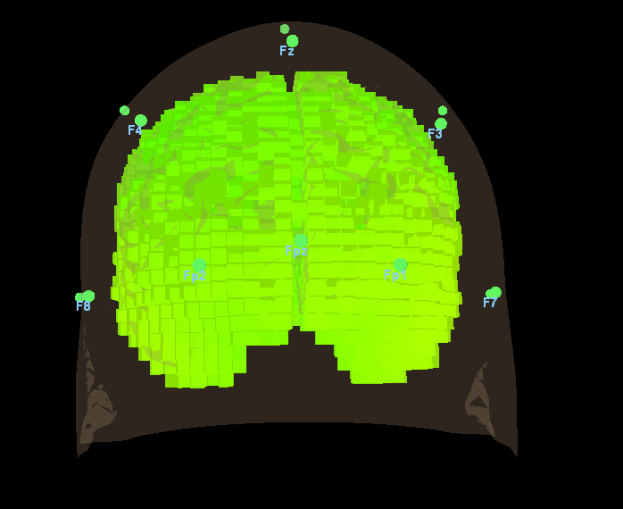Just wanted to catch up with you as I’ve been off the radar for quite some time unless you follow on Facebook, that’s easy to keep up with! After 4 years of preparation and recent months of intense study, I finally took and passed my board certification exam for neurofeedback, woohoo, it’s official now! Also been in the throes of major technological advances, new software, and new protocols that seem to be helping people progress in their training faster than ever before. But it’s high time I get back to writing…and there’s something that’s been on my heart for a year now so here goes…look out!
It’s a week after Thanksgiving as we are well into the holiday season.
Confession: I struggle this time of year, do you? With all these extra things to do and decisions to make on top of an already busy schedule, it can become quite stressful. Stress does not help the brain, it’s harmful. If you know anything about me, and why I write these days, it’s all about TAKING GOOD CARE OF YOUR BRAIN! Because, as Dr. Daniel Amen says, “If your brain works right, you work right. If your brain is in trouble, YOU are in trouble!”
Now here’s the take home, folks… unlike stress, GRATITIDE is GOOD for your brain.
Thanksgiving is my FAVORITE holiday. In fact, I prefer to celebrate thanksgiving EVERY DAY! Not like all the food and such, but to focus on thankful, grateful thoughts is POWERFUL. One of the first assignments my clients receive is to count ten thankful thoughts every morning before they get out of bed. Never asking anyone to do anything I am not willing to do myself, I promise this has been going on in my head since July 2011 when someone challenged ME to do this…in writing. For three years I kept a gratitude JOURNAL, refusing to leave the house in the morning until I filled a page with good thoughts.
It was LIFE-CHANGING.
And except for a few dollars in paper, IT WAS FREE!!!
How refreshing is that? In this economy, while we struggle to do better, think better, feel better, and give the perfect Christmas gift to our loved ones you know what would be SO COOL? Imagine if everyone would share thanks and gratitude. Doesn’t it make you feel good to be appreciated? Maybe instead of being hard on ourselves we could appreciate ourselves just a little bit too. We can appreciate, like by written or verbal expression, what others do for us, share how much they mean to us, and what we appreciate about them.
That is a gift.
Why would we want to do such a thing??? GUESS WHAT?
Studies (Ng et al, 2012) have shown that
higher levels of gratitude were associated with better sleep, and with lower anxiety and depression. National Institute of Health (NIH) researchers examined blood flow in various brain regions while subjects summoned up feelings of gratitude (Zahn et al, 2009). They found that subjects who showed more gratitude overall had higher levels of activity in the hypothalamus. This is important because the hypothalamus controls a huge array of essential bodily functions, including eating, drinking and sleeping. It also has a huge influence on your metabolism and
stress levels. From this evidence on brain activity it starts to become clear how
improvements in gratitude could have such wide-ranging effects from increased exercise, and improved sleep to decreased depression and fewer aches and pains. Furthermore, feelings of gratitude directly activated brain regions associated with the neurotransmitter
dopamine. Dopamine feels good to get, which is why it’s generally considered the “reward” neurotransmitter. But dopamine is also almost important in initiating action, in other words, MOTIVATION!
Gratitude engages your brain in positive thoughts. Your brain can only effectively focus on one thing at a time, therefore, thinking about anything thankful can pull you out of a negative rut, just one thought at a time. Indeed, it can be difficult since the brain is actually wired to look for negative things (it’s a safety issue) and things that it holds to be true (so if you have been having a hard time, it’s going to be looking to confirm the difficult things) but the extra effort to focus on anything positive, grateful or thankful can be POWERFUL in creating a more positive mental outlook! If you are having a tough time, start with appreciating things often taken for granted, like running water, breathing, clean clothes, food, utilities and sunshine.
Now rewind to the part about my past 4 years of neuroscience study…did you know that different PARTS of your brain are engaged when you are positive (happy, grateful) or negative (angry, sad, resentful)? Simply stated, brain waves travel at different speeds in different places and this fully contributes to THE WAY WE FEEL!
See for yourself! The first image below was taken when my client was asked to think of something that makes her angry or annoyed. The second was while I told her to continue ruminating on the negative situation. The third image was shortly after I instructed her to “Push pause, change the channel, and focus on happy, grateful thoughts” Folks, this is the
SAME PERSON WITH THE SAME BRAIN IN THE SAME SESSION just moments after the negative emotional burst! Each square represents a 5mm voxel of electrical information windowed to look at high beta frequencies. The red indicates HIGH LEVELS OF SUPER FAST BRAINWAVES across the temporal lobes under which lie the emotions and important structures such as the thalamus which direct traffic throughout the brain…this is NOT GOOD!
Like any other skill, gratitude takes practice, but the benefits of reducing anxiety, depression and insomnia will be worth it to you AND the people in your life.
Here is my challenge: I will call it:
THE GRATITUDE PROJECT
- Start a gratitude journal with 5-10 thankful thoughts every day (or even count to ten on your fingers, that’s what I do before getting out of bed in the morning)
- Tell somebody thank you for something every day
- Pick at least one person every day and tell him or her why you appreciate them (extra points for doing this with someone who really annoys you…in psychology it’s called “shaping” good behavior, LOL)
- This Christmas, along with some other token present (this may or may not work as a stand alone!) give the gift of gratitude to someone who is special to you. Cut up sheets of paper. You can even get creative with this). On each one, write something you love about them, what you appreciate, something they do or did that you are thankful for. I did this for my husband’s birthday. He’s hard to shop for. Put the papers in a gift box or decorate one yourself. Watch the recipient’s face light up when as they ready your words of gratitude, it’s SWEET!
- Whenever you are having hard time and things are not going your way, be mindful of what IS going right, any little thing you ARE grateful for, or even make yourself laugh by thinking of how much more incredibly worse it could be then be glad it is not true…or laugh if that worse thing happens and congratulate yourself for being so intuitive, LOL. Mindfulness is key! Mind full of gratitude vs. negativity.
While I lost 4 days of work while my MacBook Pro was in the Apple Store ICU for a crashed hard drive, I am grateful my tendonitis elbow feels better from the break (I still had other devices to rely on, just no word processing), the geniuses were able to fix my beloved laptop and recover my data, for this plane ride to my sunny home from the Windy City after a radiology conference, thankful I don’t just image brains anymore but I get to HELP THEM, for earplugs, and I am grateful to you for reading my stuff:)
Thank you!
Becky
P.S. If you need any help getting started with The Gratitude Project, feel free to give me a call at 928-486-5414. Oh, also ask about our BOGO deal on holiday GIFT CERTIFICATES so you can now give the gift of BRAIN FITNESS using Neurofeedback, how cool is that?







